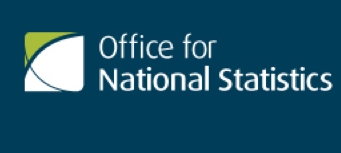The second inflation figures for the period after the EU referendum have this morning shown the rate was unchanged from July.
The Consumer Prices Index rose by 0.6% in the year to August 2016. The ONS said it increased by 0.6% in the year to July 2016, compared with a 0.5% rise in the year to June.
The Office for National Statistics said: “The rate is still relatively low in the historic context although it is above the rates experienced in 2015 and early 2016.
"The main upward contributors to change in the rate were rising food prices and air fares, and a smaller fall in the price of motor fuels than a year ago.
"These upward pressures were offset by falls in hotel accommodation prices, in addition to smaller rises in the prices of alcohol, and clothing and footwear than a year ago."
CPIH (not a National Statistic) rose by 0.9% in the year to August 2016, unchanged from July.
Reaction
Calum Bennie, savings expert at Scottish Friendly, said: “Today’s news that inflation has remained at 0.6% will provide savers with a small respite, but they must not rest on their laurels. We have been warned that interest rates will remain low for some time, and the threat of a further cut continues to loom large. As a result, savers need to be careful that any money they are putting away is simply not left to rot while inflation remains ahead of many cash rates available at the bank.
“All eyes will be on Mark Carney ahead of Thursday’s interest rate decision. It is imperative that people are given a reason to save and more must be done to prevent rates from crashing down to next to zero.
“However, there are options available for savers through investing in stocks and shares. While risk is attached, there is potential for long-term growth during this period of rock bottom returns on savings accounts.”
Anna Stupnytska, global economist at Fidelity International, said: “While both core and headline CPI were unchanged from last month, slightly below expectations, Producer Price Index (PPI) input prices surged at the highest pace since late 2011.
"This will hurt producers and likely result in higher output prices as they are passed on to consumers. These numbers illustrate that the impact of currency depreciation continues to come through in inflation numbers—as the weak pound pushes up the cost of imports, this trend will continue. The extent of sterling depreciation seen thus far, around 17% in trade-weighted terms since the end of 2015, could boost consumer price inflation by more than 1 percentage point, with the peak likely to occur in 2017, assuming no further currency falls.
“In the meantime, given the somewhat rosier picture of the economy painted by the recent data, the BOE is likely to stay on hold for now, at least in the upcoming September meeting. While the economy might well manage to avoid recession in the coming quarters, the bigger issue is the threat to productivity and growth from lower labour supply (depending on immigration policy) and from the loss of access to single market (entailing trade barriers). But this is a longer-term story.”

